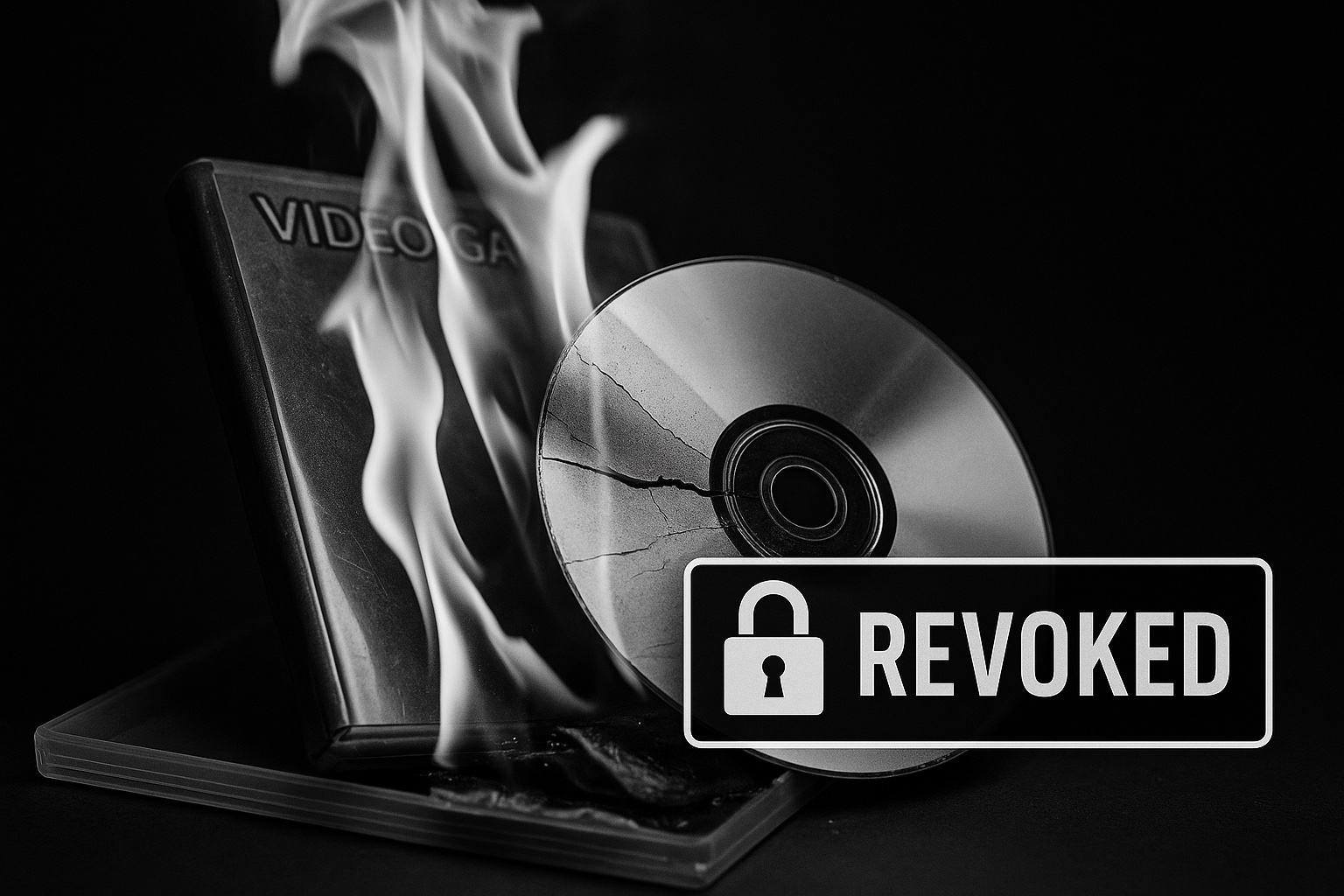
Digital Ownership (Part II) - You bought It? Doesn’t matter. You don’t own it.
by Kai Ochsen
There’s a quiet shift happening in the digital world, so quiet, most people don’t notice it until it’s too late. We’re living in a time where you can spend money on something, hold a receipt in your inbox, see the purchase in your account history… and still not actually own what you paid for.
You think you bought that game, movie, or eBook? Maybe. But if the company who sold it to you decides otherwise, it’s gone. Deleted. Disabled. Reclaimed. No refund, no apology, no recourse. Let’s talk about that.
When Ubisoft said the quiet part out loud
Just days ago, Ubisoft stirred up a digital hornet’s nest. In a now-infamous exchange, a community manager responded to a player concerned about the longevity of their purchased games. The reply? If a game is no longer supported, users should go ahead and delete all their copies, even physical ones.
That was shocking enough. But it turned out not to be a slip of the tongue. Ubisoft’s updated End User License Agreement (EULA) explicitly states:
“Upon termination for any reason, You must immediately uninstall the Product and destroy all copies of the Product in Your possession.”
Yes, even the disc on your shelf. Even the cartridge you bought years ago.
This clause wasn’t buried. It was front and center in the EULA, a legally binding contract most users click through without reading. And it sparked a wave of outrage, giving fresh momentum to the Stop Killing Games campaign, which now counts over a million voices demanding an end to this kind of digital overreach.
Ubisoft later tried to walk it back, calling it a misunderstanding, but the damage was done. Their policy didn’t just hint at controlling your library, it stated outright that they can invalidate your ownership, even of physical media, at their discretion.
Amazon and Orwell. Ironic, isn’t it?
If Ubisoft’s stance sounds surreal, let’s not forget the precedent. Back in 2009, Amazon remotely deleted digital copies of George Orwell’s 1984 and Animal Farm from Kindle devices, books that users had legitimately purchased. No notice, no option to keep the files. They just vanished. The irony of Orwell being deleted? That wasn’t lost on anyone. And yet, that case wasn’t a one-off. It was an early warning sign.
Today, eBooks, music, and even movies you “buy” on platforms like Amazon, Apple, or Google Play can disappear from your library if the licensing changes, the publisher pulls it, or the company shuts down part of its service. You won’t get a physical copy. You won’t get compensation. You'll just get a polite email (if that) saying it’s no longer available.
But you paid for it…
We’ve grown up equating payment with ownership. You buy a car, it’s yours. You buy a guitar, a game, a book, yours. You lend it, you resell it, you keep it. You scratch it, that’s on you. But it’s still yours. That logic doesn’t hold in the digital age.
When you buy a game through Ubisoft Connect, Steam, or even PlayStation, you’re not really buying the game, you’re buying a license to access it. It can be suspended. Revoked. And if the platform goes down or removes the product? Tough luck. You didn’t buy the game, you bought permission.
The same goes for your movies on Apple TV. Or your Kindle books. Or that software suite you paid full price for, now requiring a monthly subscription just to keep using the features you already had.
Physical media is dying, and that’s the point
We were sold the digital transition on convenience. Stream from anywhere. Sync across devices. Save space. And it’s true, digital can be easier, faster, cleaner. But here’s the tradeoff: control.
With physical media, the company can’t take it away. The disc might scratch. The cartridge might stop working. But you own it. It’s yours to keep, gift, lend, or resell. Digital media? It lives on their servers. On their terms. Behind DRM. Inside walled gardens that you have no keys to.
And companies are pushing hard to eliminate physical editions altogether. Not because it’s good for you, but because it’s great for them. No production cost. No resale market. Full pricing control. Total revocability.
Why this should worry you
It’s not just about games or books. This trend is a reflection of a larger shift in how corporations view consumers. You're not an owner. You're a user. A subscriber. A revenue stream, one that can be throttled, shut down, or re-monetized at will.
And if ownership disappears entirely from our digital lives, so does a layer of freedom. The right to archive, to modify, to preserve. The ability to disconnect from corporate servers and still access the culture you paid to support.
In the long run, this isn't just about media. It's about autonomy. History. Memory. It's about what it means to possess something in a digital world, and whether we’re okay with being told we don’t.
So the next time you “buy” something online, ask yourself: Can I access this without their permission? Will it still exist in 10 years? Could they take it away tomorrow?
If the answer is “no,” maybe you didn’t really buy it at all.